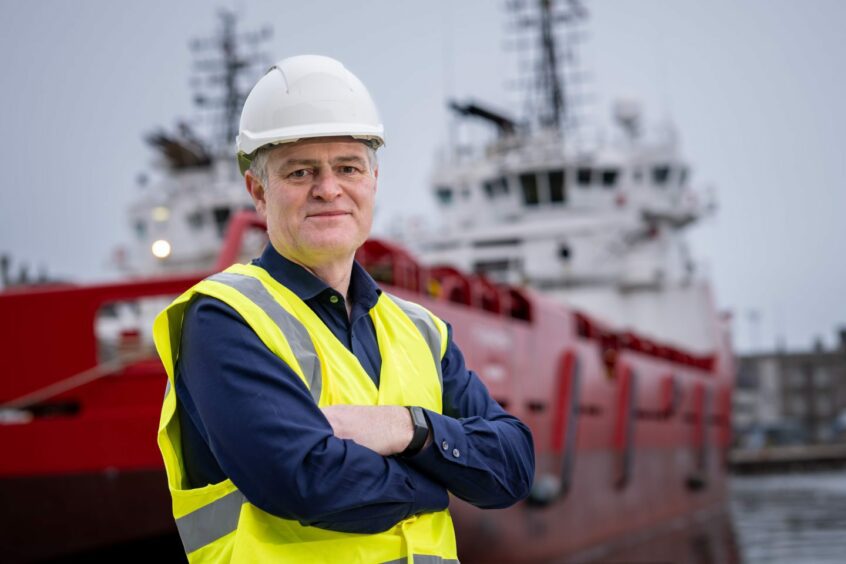
“We want the oil and gas sector to be the most inclusive sector to come and work” says OEUK boss following disappointing D&I reporting from its member organisations.
Late last year it was revealed that only 5% of the leading trade body Offshore Energies UK’s (OEUK) 400 members responded to an employer survey on their diversity and inclusion (D&I) work.
In addition to this, as few as seven of the 400 firms submitted data on categories other than age and gender.
OEUK had previously described D&I as “critical” to the sector achieving net zero and the energy transition.
In a conversation with Energy Voice, chief executive of the trade body David Whitehouse said that the fact that OEUK runs a D&I survey “shows we take it seriously.”
Mr Whitehouse explained that “not very many sectors” track D&I in the way OEUK does and it aims to set the “gold standard” in that space.
He added: “The fact we didn’t get the uptake, I’ll hold my hand up, I need to do a better job of ensuring that we are getting our members to provide data.
“On the back of the fact that we didn’t get the uptake, we’re going to follow through with all of our members just ensuring that we are continuing to take D&I seriously.”
How will OEUK boost D&I reporting?
Following each of its D&I surveys, OEUK produces tolls to support the areas that were found lacking.
An OEUK spokeswoman explained: “There were two tools that they developed after, the survey in 2021 and this most recent one, the team is developing guidance to help boost that uptake.”
The trade body boss made assurances that over the course of the next 12 months OEUK, and its member companies, will show “the evidence of how seriously the industry takes our obligations.”
It was said that this tool to support its member companies report D&I data within their organisations will be brought out by OEUK later in 2024.
After the trade body shared its 2021 figures, OEUK produced the “Flexible pathways for recruitment and promotion” and “Developing an inclusive and diverse leadership culture” toolkits.
These were set up to provide checklists so that companies could record their current D&I status and “develop future plans.”
OEUK launched the employer survey on the issue in 2022 to find out whether firms “had previously collected D&I data and if not, why not”.
When David Whitehouse was asked about this and whether or not OEUK’s members will use the tools it aims to provide, he said: “I’m lucky enough to interact with a lot of people who work in the sector.
“When you talk about diversity and inclusion, that comes across as an important topic not just with the staff but with the senior leaders.”
D&I signalling from industry ‘can sound like empty words’
He feels that the signals he receives from people at all levels of the UK energy sector indicate a “good understanding of the issue” and that “they do take diversity and inclusion seriously.”
However, he understood that following the lack of reporting from the sector as hundreds of firms failed to provide D&I data, this can be hard to believe.
He added that these claims “can sound like empty words” but Mr Whitehouse and his team are committed to “demonstrate the gold standard for diversity and inclusion.”
The trade organisation’s chief executive said that “not just OEUK, but the entire sector” will strive to make progress in the space.
Improving the gender split on and offshore
There is a lot of work to be done in reaching equality in the offshore sector, in particular, last year OEUK’s workforce engagement and skills manager told Energy Voice that the number of women in the field made up just 3.4% of the workforce, a figure she said had “remained stubbornly static.”
In response to these figures, Mr Whitehouse says that “there is more we need to do to shift the dial.”
However, the OEUK boss said that he is already seeing “a number of operators” having conversations on “how you make it a more inclusive environment.”
He added: “I think what you’re already seeing at a leadership level is people recognising that for us to be successful we do need more diversity, more gender diversity both onshore and offshore.
“OEUK is already engaging through those workgroups on ‘how do we make the offshore environment a more inclusive place?’”
Mr Whitehouse says that achieving this goal “is going to take some time” and he said that it is not just OEUK pushing for change, organisations like Aberdeen’s gender Equality Group AXIS Network, are pushing for equal opportunity for the female workforce as well.
On AXIS, Mr Whitehouse said that it is “absolutely” supporting the industry’s move in the right direction.
Recommended for you

